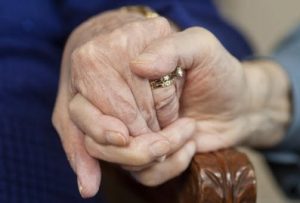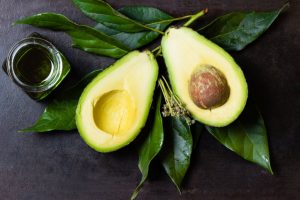Compliments of :
Body: Avocado Tomato Feta Salad
Spirit: Ego
Competing Values - Part 1

What makes tough decisions so darn tough? Usually it is because you are faced with a choice or dilemma that involves equally compelling and seemingly competing principles and values.
This is especially the case when confronting questions and issues around caregiving, where choices can often appear to be in opposition. Here is a recent experience to illustrate the point.
Mary and Ann are sisters, both in their 90s and living thousands of miles apart. Mary’s Alzheimer’s was advanced, while Ann was just starting to present the first stages of Alzheimer’s disease. Both Mary and Ann have loving adult daughters, committed to providing care and support.
Mary caught the flu, and given her fragile state, was not recovering at all. After a couple of months of more aggressive interventions, the medical team moved Mary to palliative care to be more comfortable as they anticipated her passing in the coming weeks.
Mary and Ann’s daughters both decided to not tell Ann about Mary’s failing condition.
Although I respected their decision to keep this information from Ann, I didn’t agree with the decision.
My passionate attachment to the value of self-determination was bumping up against the daughters’ equally passionate value to keep Ann safe and protected from disturbing news for as long as possible.
Self-determination versus safety – a common dilemma.
I held the conviction that we had no right to withhold this information from Ann. She certainly had the mental capacity at this stage to understand the implications – so we needed to respect her right to self-determination. Yes, she would be sad, but who are we to deny her this universal life experience? A wise friend questioned my position.
Why was I so attached to Ann knowing her sister would soon pass away? What could Ann do with this information? She was in no condition herself to hop on plane and fly thousands of miles to see her sister one more time. She couldn’t even have a phone conversation with her sister, given Mary’s mental and physical condition. So, closure through contact and conversation was not an option. Interesting points.
Upon reflection, I realized my position was about my values, and probably offered no redeeming opportunity for Ann. The gift of more days or weeks without unwelcome news was perhaps a more loving option at this point in her life.
There was no correct answer – no right or wrong. It was about taking the time to explore what drives or informs our decisions. When we recognize the principle supporting a preference, we have the ability and the opportunity to make more conscious choices. With this level of awareness comes the freedom to adopt strategies that serve the most important presenting need at any one time.
Greater self-awareness doesn’t make the tough decisions go away, but they do become a little less tough!
Rhonda Latreille, MBA, CPCA
Founder & CEO
Age-Friendly Business
Avocado Tomato Feta Salad

Ingredients
- 3 tomatoes, chopped
- 1 avocado, diced
- 1 cup (250 mL) diced cucumbers
- 1 small shallot, thinly sliced
- 2 tbsp (25 mL) white balsamic vinegar
- 1 tbsp (15 mL) extra virgin olive oil
- 1 tbsp (15 mL) chopped fresh oregano
- Pinch fresh ground pepper
- 1/2 cup (125 mL) crumbled light feta
Directions
In a large bowl, combine tomatoes, avocado, cucumber and shallot. Add vinegar, oil, oregano and pepper. Toss gently. Sprinkle with feta and toss again.
Tip: Be sure to buy your avocados a few days early. Look for firm green ones and let them ripen at home. The skin will darken and yield slightly when pressed. Cut the avocado in quarters then pull away from the pit and peel to dice.
Nutritional Information Per Serving ( 1/4 or about 130 g ) – Calories 120, Protein 3 g, Total fat 9 g
Saturated fat 2 g, Cholesterol 5 mg, Carbohydrates 9 g, Fibre 3 g, Sugars 4 g, Added sugars 1 g, Sodium 75 mg, Potassium 370 mg
Recipe developed by Emily Richards PH Ec. Reprinted with Permission from © Heart and Stroke Foundation 2017.
Ego
“Opinion is really the lowest form of human knowledge. It requires no accountability, no understanding. The highest form of knowledge… is empathy, for it requires us to suspend our egos and live in another’s world. It requires profound purpose larger than the self kind of understanding.”
Bill Bullard